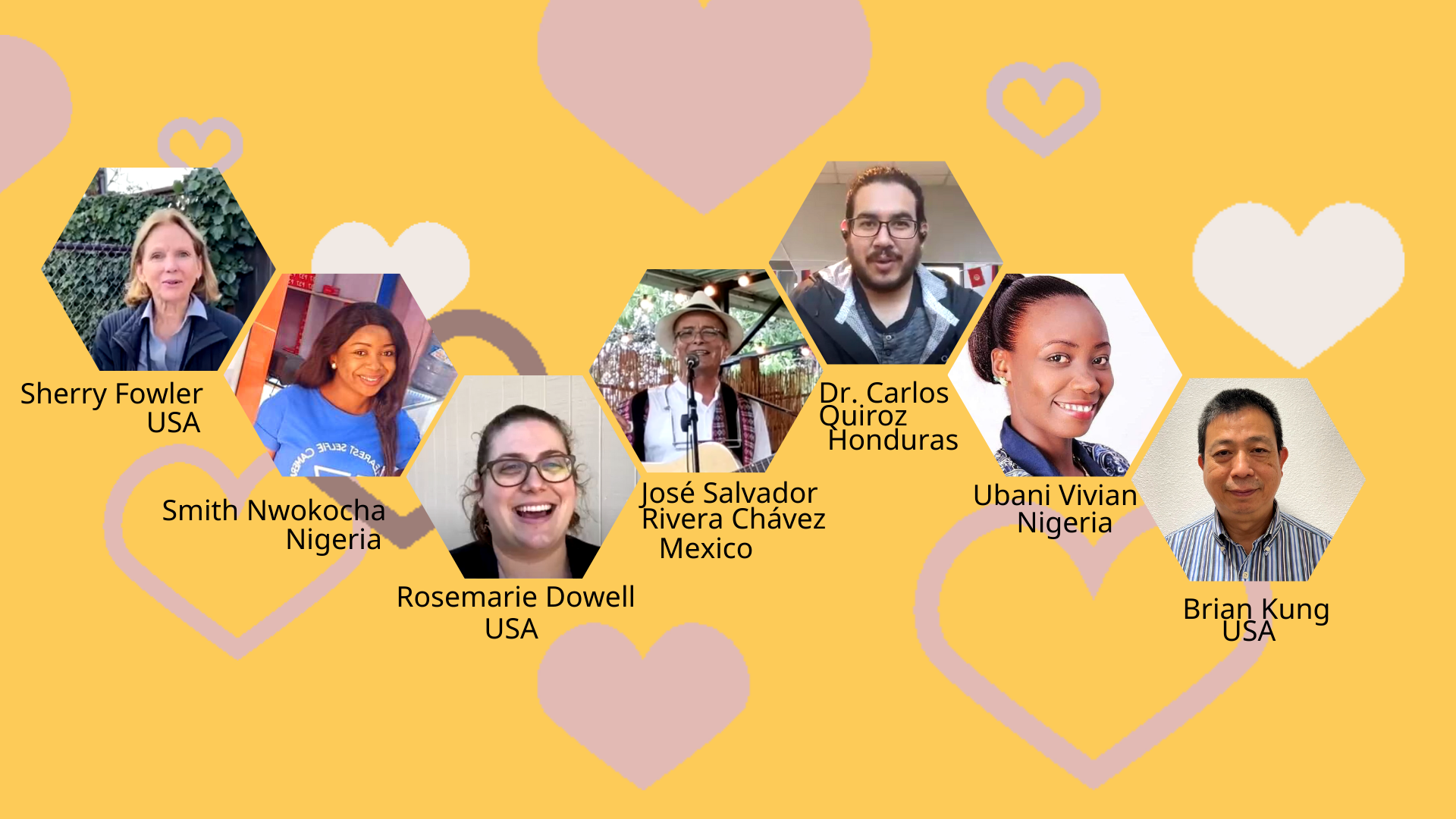
Picture: GPDN hosted an online program of March, 2022 called "Love without Fear" and invited various medical care and social personnel. They all shared how they maintain physical and emotional balance, stick to professional commitments, increase the power of love, and propel the love cycle from the front lines of life protection.
March 21, 2022
We're having a quiet time because someone is pre-loading a row for you. In recent years, natural and man-made disasters have struck the world on a regular basis. Every natural disaster tests humanity's fortitude. Medical personnel, in particular, are among the first to be confronted by the epidemic's unpredictability.
In March, the independent international news media "Global People Daily News" hosted an online program called "Love without Fear," to which various medical care and social personnel were invited: Brian Kung, a laboratory assistant at a US hospital; Sherry Fowler, a nurse, and Rosemarie Dowell, a director of medical care, both from Palo Alto School District, USA; Ubani Vivian, a Nigerian child care worker; Dr. Carlos Quiroz, a Honduran doctor; and Mrs. Smith Nwokocha, a Nigerian vulnerable groups spokesperson. They all shared how they maintain physical and emotional balance, stick to professional commitments, increase the power of love, and propel the love cycle from the front lines of life protection. The program will be broadcast at https://reurl.cc/LpONVx.
During the pandemic, Brian Kung, a phlebotomist and laboratory assistant at a local hospital in California, USA, said the hospital was overrun by Covid-19 patients. Fortunately, he has been practicing qigong at Tai Ji Men for many years. He not only improves his lung function and immunity by practicing qigong and meditating, but he also learns to deal with work pressure more calmly. In the program, he also presented the scientifically supported "three don'ts and five do's" epidemic prevention tips. The three don'ts are: don't lose your temper, don't worry, and don't be anxious; the five do's are: wash your hands, drink more warm water, exercise more, be happy, and be more careful.
Picture 1: Brian Kung, a laboratory assistant at a nearby hospital in California, USA, presented the scientifically supported "three don'ts and five dos" guidelines for epidemic prevention.
Sherry Fowler, a clinical nurse in the Palo Alto School District in California, USA, in charge of the health of elementary students with diabetes, expressed her enthusiasm for her job and her gratitude for the things she sees around her. She regards anyone who can stay on the job throughout the pandemic as a true front-line hero. Rosemarie Dowell is the medical care director at the Palo Alto United campus in California. She uses her background in public health to protect students from the effects of the epidemic. During the pandemic, society expects you and me to respect and accept each other's differences with a kind heart, she said.
Picture 2: Sherry Fowler, a nurse in the Palo Alto School District in California, USA, believes that anyone who can stay on the job throughout the pandemic is a true front-line hero.
Rosemarie Dowell is the medical care director at the Palo Alto United campus in California. She uses her background in public health to protect students from the effects of the epidemic. During the pandemic, society expects you and me to respect and accept each other's differences with a kind heart, she said.
Picture 3: According to Rosemarie Dowell, medical care director at Palo Alto United's California campus in the United States, during the pandemic, society must respect and accept each other's differences with a kind heart.
According to Ubani Vivian, a Nigerian child care worker, caring for children becomes significantly more difficult during an epidemic. She was forced to isolate herself due to chickenpox many years ago, and she believes that medical and healthcare providers must now not only preserve and safeguard their own lives but also ensure the protection of others' lives. She paid special tribute to medical personnel from all over the world throughout the program.
Picture 4: Ubani Vivian, a Nigerian child care worker, said that caring for children becomes significantly more difficult during an epidemic.
Physician Dr. Carlos Quiroz previously worked in emergency medicine at Del Sur Hospital in Choluteca, Honduras, and is now pursuing a PhD in Taiwan. The number of patients doubled or even tripled during the pandemic, putting medical personnel under a lot of strain, he added. As a result, he hopes that everyone will be more patient, and he expresses his gratitude to everyone who worked so hard to keep everything under control.
Picture 5: Dr. Carlos Quiroz, a Honduran physician, wishes everyone patience and gratitude all those who worked tirelessly to keep everything under control.
Mrs. Smith Nwokocha, the Vulnerable Group's spokesperson, stated that prevention is more important than cure. She is determined to use the Internet's rapid spread and information to educate the public about the virus.
Picture 6: Mrs. Smith Nwokocha, the Vulnerable Group's spokesperson, stated that prevention is more important than cure.
The hostess stated that in the age of the virus pandemic, there are more topics about disease and death than about hope and kindness, and at the end of the show, a song praising life was played: "A la vida," let us pay tribute to the divine creator god, grateful that you and I still have the energy to spread love and joy in the midst of the world's crisis.
Picture 7: The hostess expressed gratitude that in the midst of the world's crisis, you and I still have the energy to spread love and joy.
